CRISPR chronicles; microbiome muddle; love on the spectrum
The fight over who holds the rights to CRISPR is heating up, we control our gut bacteria, and romance isn’t always easy when you have autism.
The fight over who holds the rights to CRISPR is heating up, we control our gut bacteria, and romance isn’t always easy when you have autism.
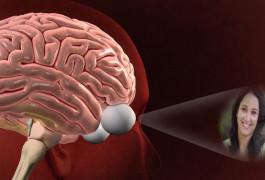
Lower activity in a key face processing region of the brain hints that people with autism could benefit from training to become ‘face experts.’
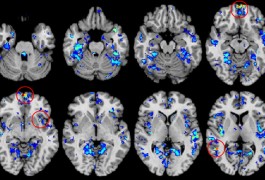
A large, multisite dataset of brain scans identifies autism with 60 percent accuracy, much lower than the numbers cited by single-site studies. The study, published 25 September in Frontiers in Human Neuroscience, highlights the vast differences in equipment, quality and methods across sites.
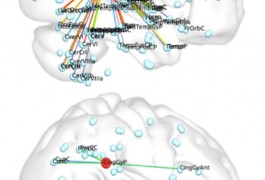
People who show strong autism traits tend to have weak connections between an area of the brain involved in introspection and social memories and other brain regions, according to a study published 5 April in PLoS One.
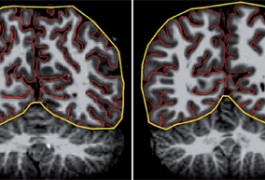
The brains of people with autism are structurally different from those of controls, with more folds and a thicker cortex in certain regions, according to two studies published in the past few months.
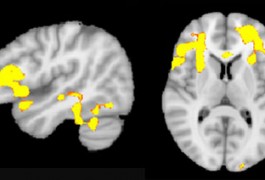
Pivotal response training, a form of behavioral therapy for autism, alters brain activity in children with the disorder, normalizing it in some regions and triggering compensatory activity in others, according to a small study. The unpublished results were presented Wednesday at the International Meeting for Autism Research in San Sebastián, Spain.
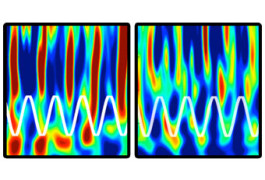
Connections between neighboring groups of brain cells are weaker in individuals with autism than in controls, according to a report published 14 January in the Proceedings of the National Academy of Sciences.
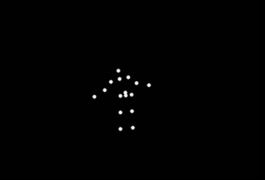
The brain’s response to biological motion can distinguish typically developing children from those who have a sibling with autism but do not have the disorder themselves, according to research presented at the 2012 Society for Neuroscience annual meeting in New Orleans.

A small pilot study suggests that the drug propranolol, typically used to treat hypertension and anxiety, enhances functional connectivity between brain regions and improves verbal fluency, according to research presented Saturday at the 2012 Society for Neuroscience annual meeting in New Orleans.
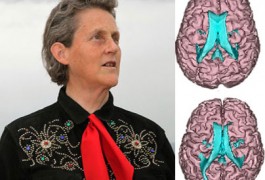
Temple Grandin, perhaps the world’s most famous person with autism, has exceptional nonverbal intelligence and spatial memory, and her brain has a host of structural and functional differences compared with the brains of controls, according to a presentation Saturday at the 2012 Society for Neuroscience annual meeting in New Orleans.